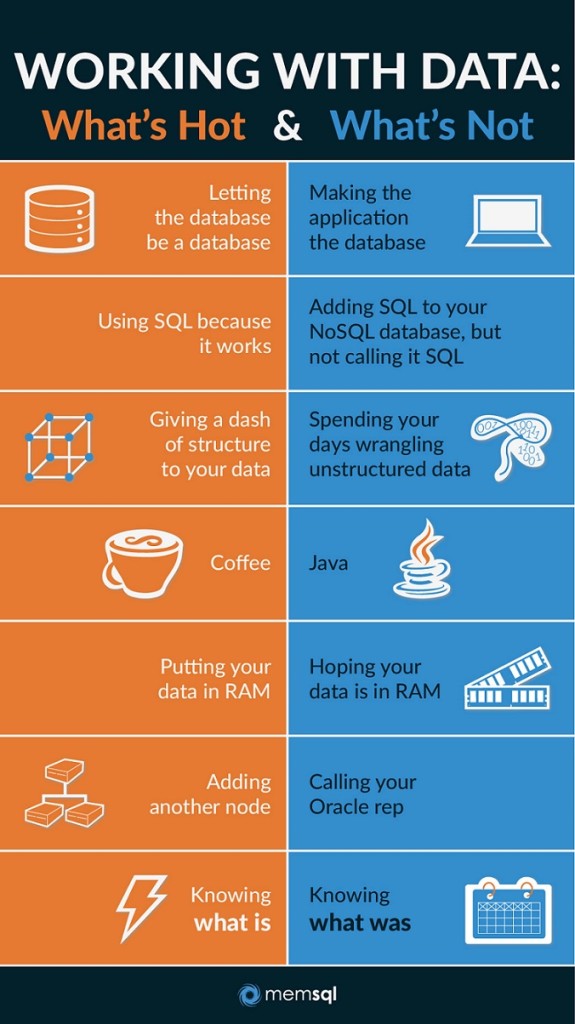
Data is often considered to be the foundation of many global businesses. Data fuels daily operations, from customer transactions to analytics, from operations to communications. So we decided to answer the question: what’s hot and what’s not in working with data today?
HOT: Letting your database be a database
Databases were constructed to store data. However, sometimes applications are used to store data itself, a result of legacy database limitations. Storing data in an application makes it hard to update that application or to extract value from that data easily. By using a database for its intended function, developers can easily make changes to an application, without affecting the data. This can save time and money in the long run.
NOT: Adding SQL to your NoSQL database, but not calling it SQL
SQL, or Structured Query Language, is the lingua franca for working with data and therefore a convenient tool for managing or analyzing data in a relational database. As a result, SQL is experiencing a renaissance. Many NoSQL databases now realize the value of SQL and SQL-like features such as JOINs. They are making hasty attempts to integrate SQL into their offerings, without acknowledging the gaps.
HOT: Giving a dash of structure to your data
Rather than spending your days wrangling unstructured data, providing some structure to your data upfront improves your ability to put that data to use down the road. Time is of the essence when it comes to most applications, and a little structure goes a long way for enabling real-time applications. Real-time stream processing frameworks like Apache Spark make it possible to add structure to data on the fly, so it is ready to be queried as soon as it lands in the database.
HOT: Putting your data in RAM
If data is made easily accessible, data locality will increase. Hoping your dataset fits in RAM is not a strategy – a strategic decision to ensure data is in RAM improves the efficiency of applications that sit on the top of a database.
NOT: Calling your database representative for scaling support
Instead of calling your traditional database representative for scaling support, just add nodes with more flexible databases to achieve scale out. Adding nodes increases the speed of data processing. For example, with SingleStore you can add additional nodes while the cluster remains online.
HOT/NOT: Knowing what is/knowing what was
People are interested in staying up to date with the latest data processing techniques. Knowing what works for the present reality is more important that sticking with trends of the past. Real-time analytics will pave the way forward for business – it will reveal the path forward and ensure data does not remain trapped in dark corners.
If you work with with databases or data, understanding the hot topics at present will save you from having to do battle with your data as you build applications, scale and innovate for your companies and yourself.












